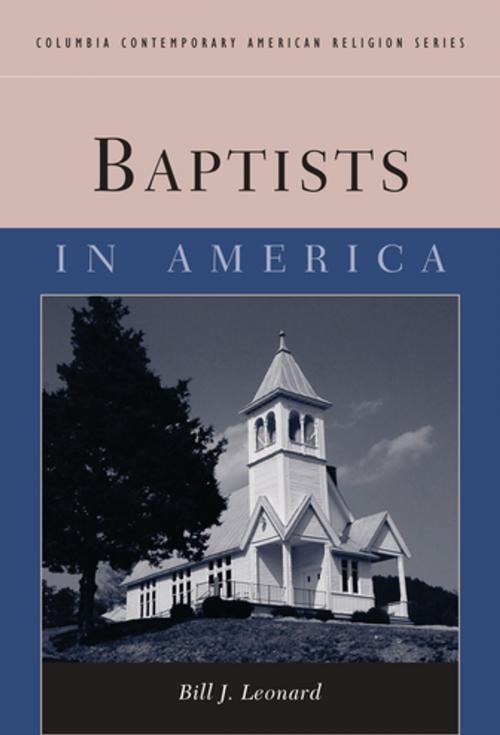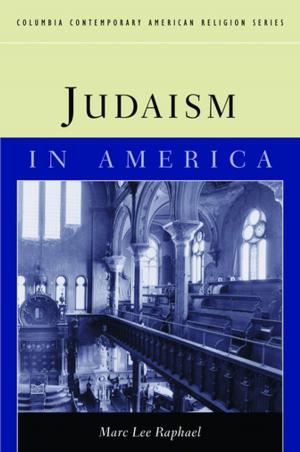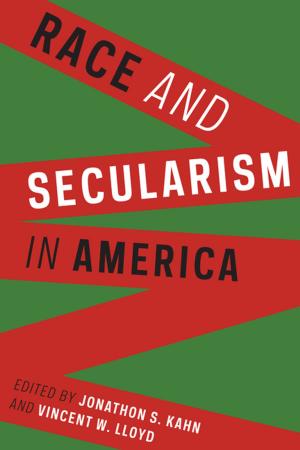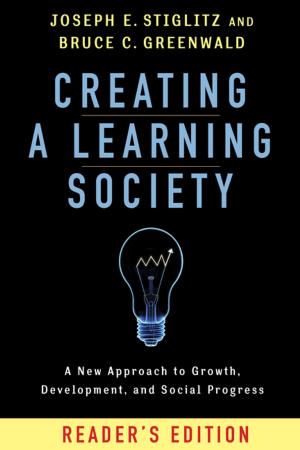Baptists in America
Nonfiction, Religion & Spirituality, Christianity, General Christianity, History, Americas, United States| Author: | Bill Leonard | ISBN: | 9780231501712 |
| Publisher: | Columbia University Press | Publication: | April 1, 2005 |
| Imprint: | Columbia University Press | Language: | English |
| Author: | Bill Leonard |
| ISBN: | 9780231501712 |
| Publisher: | Columbia University Press |
| Publication: | April 1, 2005 |
| Imprint: | Columbia University Press |
| Language: | English |
Baptists are a study in contrasts. From Little Dove Old Regular Baptist Church, up a hollow in the Appalachian Mountains, with its 25-member congregation, to the 18,000-strong Saddleback Valley Church in Orange County, California, where hymns appear on wide-screen projectors; from Jerry Falwell, Jesse Helms, and Tim LaHaye to Martin Luther King Jr., Jesse Jackson, Bill Clinton, and Maya Angelou, Baptist churches and their members have encompassed a range of theological interpretations and held a variety of social and political viewpoints. At first glance, Baptist theology seems classically Protestant in its emphasis on the Trinity, the incarnation of Jesus Christ, the authority of Scripture, salvation by faith alone, and baptism by immersion. Yet the interpretation and implementation of these beliefs have made Baptists one of the most fragmented denominations in the United States. Not surprisingly, they are often characterized as a people who "multiply by dividing."
Baptists in America introduces readers to this fascinating and diverse denomination, offering a historical and sociological portrait of a group numbering some thirty million members. Bill J. Leonard traces the history of Baptists, beginning with their origins in seventeenth-century Holland and England. He examines the development of Baptist beliefs and practices, offering an overview of the various denominations and fellowships within Baptism. Leonard also considers the disputes surrounding the question of biblical authority, the ordinances (baptism and the Lord's Supper), congregational forms of church governance, and religious liberty.
The social and political divisions among Baptists are often as dramatic, if not more so, than the theological divides. Leonard examines the role of Baptists in the Fundamentalist and Social Gospel movements of the early twentieth century. The Civil Rights movement began in African American Baptist churches. More recently, Baptists have been key figures in the growth of the Religious Right, criticizing the depravity of American popular culture, supporting school prayer, and championing other conservative social causes. Leonard also explores the social and religious issues currently dividing Baptists, including race, the ordination of women, the separation of church and state, and sexuality. In the final chapter Leonard discusses the future of Baptist identity in America.
Baptists are a study in contrasts. From Little Dove Old Regular Baptist Church, up a hollow in the Appalachian Mountains, with its 25-member congregation, to the 18,000-strong Saddleback Valley Church in Orange County, California, where hymns appear on wide-screen projectors; from Jerry Falwell, Jesse Helms, and Tim LaHaye to Martin Luther King Jr., Jesse Jackson, Bill Clinton, and Maya Angelou, Baptist churches and their members have encompassed a range of theological interpretations and held a variety of social and political viewpoints. At first glance, Baptist theology seems classically Protestant in its emphasis on the Trinity, the incarnation of Jesus Christ, the authority of Scripture, salvation by faith alone, and baptism by immersion. Yet the interpretation and implementation of these beliefs have made Baptists one of the most fragmented denominations in the United States. Not surprisingly, they are often characterized as a people who "multiply by dividing."
Baptists in America introduces readers to this fascinating and diverse denomination, offering a historical and sociological portrait of a group numbering some thirty million members. Bill J. Leonard traces the history of Baptists, beginning with their origins in seventeenth-century Holland and England. He examines the development of Baptist beliefs and practices, offering an overview of the various denominations and fellowships within Baptism. Leonard also considers the disputes surrounding the question of biblical authority, the ordinances (baptism and the Lord's Supper), congregational forms of church governance, and religious liberty.
The social and political divisions among Baptists are often as dramatic, if not more so, than the theological divides. Leonard examines the role of Baptists in the Fundamentalist and Social Gospel movements of the early twentieth century. The Civil Rights movement began in African American Baptist churches. More recently, Baptists have been key figures in the growth of the Religious Right, criticizing the depravity of American popular culture, supporting school prayer, and championing other conservative social causes. Leonard also explores the social and religious issues currently dividing Baptists, including race, the ordination of women, the separation of church and state, and sexuality. In the final chapter Leonard discusses the future of Baptist identity in America.















